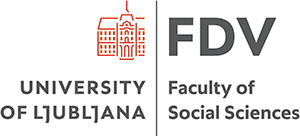Participation is free of charge; however, registration is required.
Preliminary programme of the event
|
8:00 |
Check-in, registration and informal meetings |
|||
|
Trends in the field of web surveys |
||||
|
8.30 |
Methodological, informational and user aspects of web surveys, dr. Vasja Vehovar Global trends in the field of web surveys will be reviewed. Further consideration will emphasize three aspects: the integration of mobile devices, measuring the quality of real-time data and user experience issues. Regarding those considerations, research, innovations and the future development of the 1KA tool will be presented. |
|||
|
9:00 |
Break |
|||
|
Methodological challenges of web surveys |
||||
|
9:10 |
Potentials of language technologies in the creation of web questionnaires, Ana Slavec When we are creating a question, our choice of words is an important issue; thus preliminary results, which have revealed the influence of the comprehensibility of the included words on data quality, will be presented. A prototype module of the 1KA application, which is being produced in collaboration with the Artificial Intelligence Laboratory (Jožef Stefan Institute), will also be presented. The module includes language corpora and semantic lexicons in the process of question creation, which assist the user in reviewing the suitability of the wording of the survey questions. |
|||
|
9:30 |
Multitasking in web surveys, Anže Sendelbah Modern technologies encourage multitasking, which can be a serious problem for web surveys since respondents can be interrupted or complete the survey while simultaneously watching TV or chatting on online social media. The extent of multi-tasking while completing a web survey and methods of measurement used in 1KA will be presented. |
|||
|
9:50 |
Break-offs in web surveys: a meta-analysis, Gregor Čehovin Web surveys can be easily terminated (break-off), which is a very serious problem. A conceptual framework, the distinction of break-off after the introduction and during the survey, and the corresponding indicators will be presented. The problem will be illustrated with a case study based on 5,752 surveys conducted in 1KA, whose aim is to reveal the extent and factors of break-offs in web surveys. |
|||
|
10:10 |
Break |
|||
|
Web surveys in the context of the survey methodology |
||||
|
10:20 |
The mode effect of web surveying, dr. Nejc Berzelak Complex or sensitive questions (e.g. consumption of cannabis) can be answered differently in a web survey than in a personal interview. The identification of its impact is of extreme importance, especially in mixed-mode surveys. Unfortunately, it is difficult to isolate the above-mentioned impact from other effects of survey implementation (technology, sampling mode, the context of answering, etc.). A conceptual framework, methodological approach and assessment of this impact will be presented. |
|||
|
10:40 |
Introduction and e-mail invitations in web surveys, dr. Katja Lozar Manfreda Web survey invitations have a decisive influence on the level of participation. We will present general factors of invitations that affect participation, after which we will analyze experience gathered on the basis of a series of methodological experiments, which dealt with the role of the sponsor, length, etc. |
|||
|
11:00 |
Using web surveys in the exploration of online communities, dr. Andraz Petrovčič An important area of web survey use is research on online communities. In this context, the role and position of potential respondents in these communities is important. They can participate actively or as passive lurkers. Basic sampling methods and the recruitment of respondents in online communities, which can result in differences in the level of participation and the quality of responses, will be discussed. |
|||
|
11:20 |
Lunch and coffee break |
|||
|
Parallel sections in several lecture halls |
||||
|
12:15 |
1KA for beginners Marjana Vrh |
Implementation of 1KA in organizations (Grand hall)
|
||
|
13:15 |
A systematic review of 1KA’s functionalities Gregor Čehovin Grand hall |
Novelties and advanced functionalities of 1KA Petrovčič & Sendelbah Lecture hall FDV-7 |
Own installation and own domain Vasja Vehovar Lecture hall FDV-10 |
|
|
14:15 |
End of the workshops and closing discussion |
|||
|
15:00 |
End of the event |
|||
Descriptions of parallel sections
1KA for beginners
The workshop is intended for people who have minimal experience with making web surveys and have limited experience with computer applications. The workshop will be conducted in the computer lab, where the basic functionalities of creating a web questionnaire, its publishing and basic analyses will be presented in an interactive manner.
Marjana Vrh is a graduate of Social Informatics and a part of 1KA's user help-desk.
A systematic review of 1KA functionalities
The workshop is intended for users who already have minimum experience with the 1KA tool, especially for users who have experience with other online tools or are IT experienced and would like to obtain rapid and comprehensive insight into the range of 1KA functionalities. A systematic overview of all key aspects of 1KA will be given: the creation of a questionnaire, setting conditions, design customization, inserting logos into the skin, preparing analyses and graphs, creating custom reports, publishing and email invitations, archives and advanced modules.
Gregor Čehovin holds a Master's Degree in Social Informatics and is participating in the development of the 1KA application.
Overview of advanced functionalities of 1KA
The workshop is intended for participants who are already familiar with 1KA and are interested in advanced innovations that have been included in this online tool in the last year. Entirely new services and upgrades of existing functionalities will be presented, related to questionnaire design and the collection and analysis of survey data. Among the development innovations that will be presented are multilingual surveys, review of the registration list, combined tables and web dissemination of results. In terms of upgrades, the following topics will be presented: comments and communication between survey editors, advanced testing of a questionnaire, sending e-mail invitations from one's own domain, design and notifications settings, designing application forms, data breaks, variables recoding, designing statistical custom reports and multi tables. Diagnostic functionalities that are to be presented include paradata, item non-response and usable respondents.
Dr Andraz Petrovčič is an Assistant Professor of Social Informatics, where he participates in the social-informatical and methodological subjects, and in the 1KA development as a consultant for user-based experience and design of advanced methodological solutions.
Anže Sendelbah is an early-stage researcher in the field of online survey and doctoral student of Statistics; he also participates in the development of the 1KA application.
Own installation
The meeting is intended for users and organizations that have or are interested in the possibility of internal use, integration with existing IT solutions, installation of their own virtual domain (and thus the status of the manager) or their own installation (and thus the status of the administrator), either on the 1KA server or on their own server. The overview of the pros and cons of each solution will be given, as well as user experiences. We will briefly present an example of highly efficient connectivity with 1KA’s integration into the higher education VIS system for evaluation surveys.
Dr Vasja Vehovar is a full professor at the Faculty of Social Sciences, where he teaches at both undergraduate and postgraduate levels and is the head of 1KA development. His research interests are mainly statistics, survey methodology and information society indicators.



